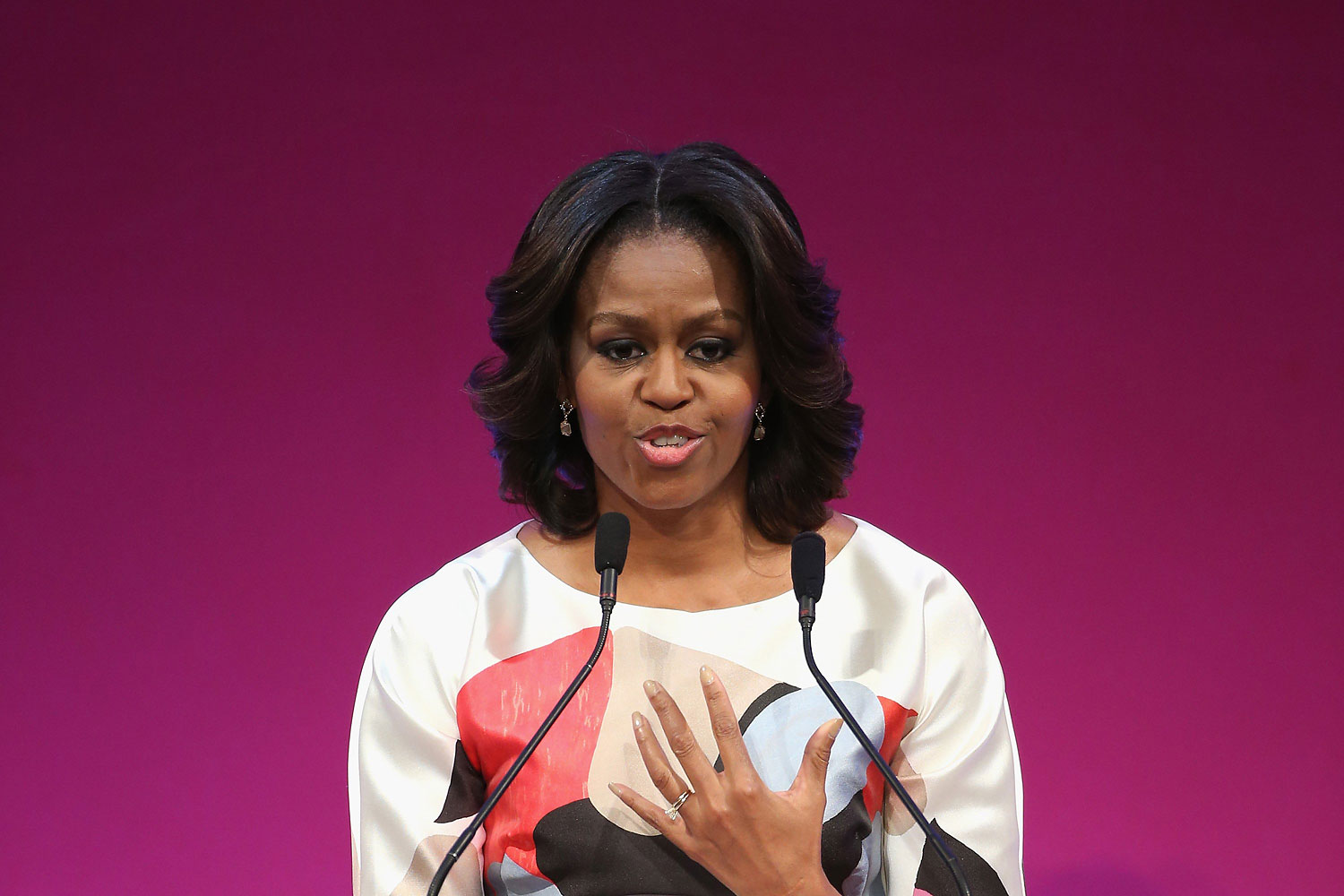
First Lady Michelle Obama used a trip to China on Saturday to promote the liberating “power of technology” in a veiled swipe at the harshly restrictive Internet and media environment in the country.
At her first — and only — major speech scheduled during her goodwill tour to China, Obama said new technology can “open up the entire world and expose us to ideas and innovations we could never have imagined.”
“It is so important for information and ideas to flow freely over the Internet and through the media,” she said. “Because that’s how we discover the truth, that’s how we learn what’s really happening in our communities, in our country and our world.”
The First Lady spoke on March 22 at the Stanford Center at Peking University, China’s oldest national university, set in a cherry-blossom and willow-tree enclave in northwestern Beijing. Speaking to a mix of Chinese and American students, Obama spent much of her speech to 200-odd people promoting the values of study-abroad programs that she, as a child of parents who had not attended college, never even considered.
For a lot of young people like me who are struggling to afford a regular semester of school, paying for plane tickets or living expenses halfway around the world just isn’t possible. And that’s not acceptable because study abroad shouldn’t just be for students from certain background.
But it was the section about Internet freedom that may raise eyebrows. Obama praised the technology’s power to spread freedom without mentioning the many ways in which the so-called Great Firewall limits Chinese access to the Internet, by blocking social-media sites like Twitter, Facebook and blogging software — plus various foreign news and human-rights websites considered too sensitive for domestic consumption.
The new U.S. ambassador to China Max Baucus, the former Democratic Senator for Montana, also extolled the virtues of Twitter and Facebook in his introduction to Obama’s speech. Both of these sites, however, are blocked in China. Western businesses have complained that such restrictions are undercutting operational efficiency, even causing some to downsize their China operations for other Asian nations with better telecommunications.
But despite constantly shifting censorship directives, the hottest news in China now spreads on native social-media platforms like Weibo or Weixin. The nation’s official news agency is far behind both in terms of public trust and substantive stories. At the same time, the rise of yellow journalism in China, exacerbated by the tendency of poorly paid reporters to accept cash payments for showing up to a press conference, is compromising journalistic objectivity.
The First Lady praised a “new era of citizen diplomacy,” a phrase she attributed to a naturalized American citizen whose parents arrived from Eritrea when he was a child and is now studying in China. But she also cautioned against a government’s tendency to shield itself from criticism, even from scurrilous tabloids, for fear of denting media freedoms:
That’s how we decide which values and ideas we think are best — by questioning and debating them vigorously, by listening to all sides of the argument and by judging for ourselves. And believe me, I know how this can be a messy and frustrating process. My husband and I are on the receiving end of plenty of questioning and criticism from our media and our fellow citizens, and it’s not always easy, but we wouldn’t trade it for anything in the world. Because time and again, we have seen that countries are stronger and more prosperous when the voices and opinions of all citizens can be heard.
Obama’s speech was pointed, although it stopped short of naming China. The rest of the First Lady’s trip — ranging from a tour of the Summer Palace and Great Wall in Beijing, to a stop to see the terra-cotta warriors in Xi’an and a cuddle with giant pandas at a reserve in Chengdu — is far less political than this Stanford Center at Peking University speech. Obama’s defense of Internet and media freedom is only a small portion of her March 22 trip.
Nevertheless, Obama’s first-ever trip to China, which she has embarked up with her mother Marian Robinson and daughters Malia and Sasha, had one further pointed stop. In Chengdu, which is not far from Tibetan regions where disaffected locals have self-immolated to protest repressive Chinese government rule, Obama will stop to eat at a Tibetan restaurant. Chengdu, capital of Sichuan province, is blessed with vibrant, spicy food. Tibetan cuisine, however, isn’t considered one of the world’s tastiest cuisines.
Nevertheless, the Obama women and girls are scheduled to tuck into a meal that will likely involve variations on tsampa (roasted barley flour), racks of yak meat, heavy dumplings and tea laced with salt and yak butter. A senior Administration official cautioned against reading too much into Obama’s Tibetan dining choice: “Tibetans are an important minority in China.” And that was that. So much for imbuing further political meaning into the First Lady’s goodwill tour.
More Must-Reads from TIME
- Why Trump’s Message Worked on Latino Men
- What Trump’s Win Could Mean for Housing
- The 100 Must-Read Books of 2024
- Sleep Doctors Share the 1 Tip That’s Changed Their Lives
- Column: Let’s Bring Back Romance
- What It’s Like to Have Long COVID As a Kid
- FX’s Say Nothing Is the Must-Watch Political Thriller of 2024
- Merle Bombardieri Is Helping People Make the Baby Decision
Contact us at letters@time.com